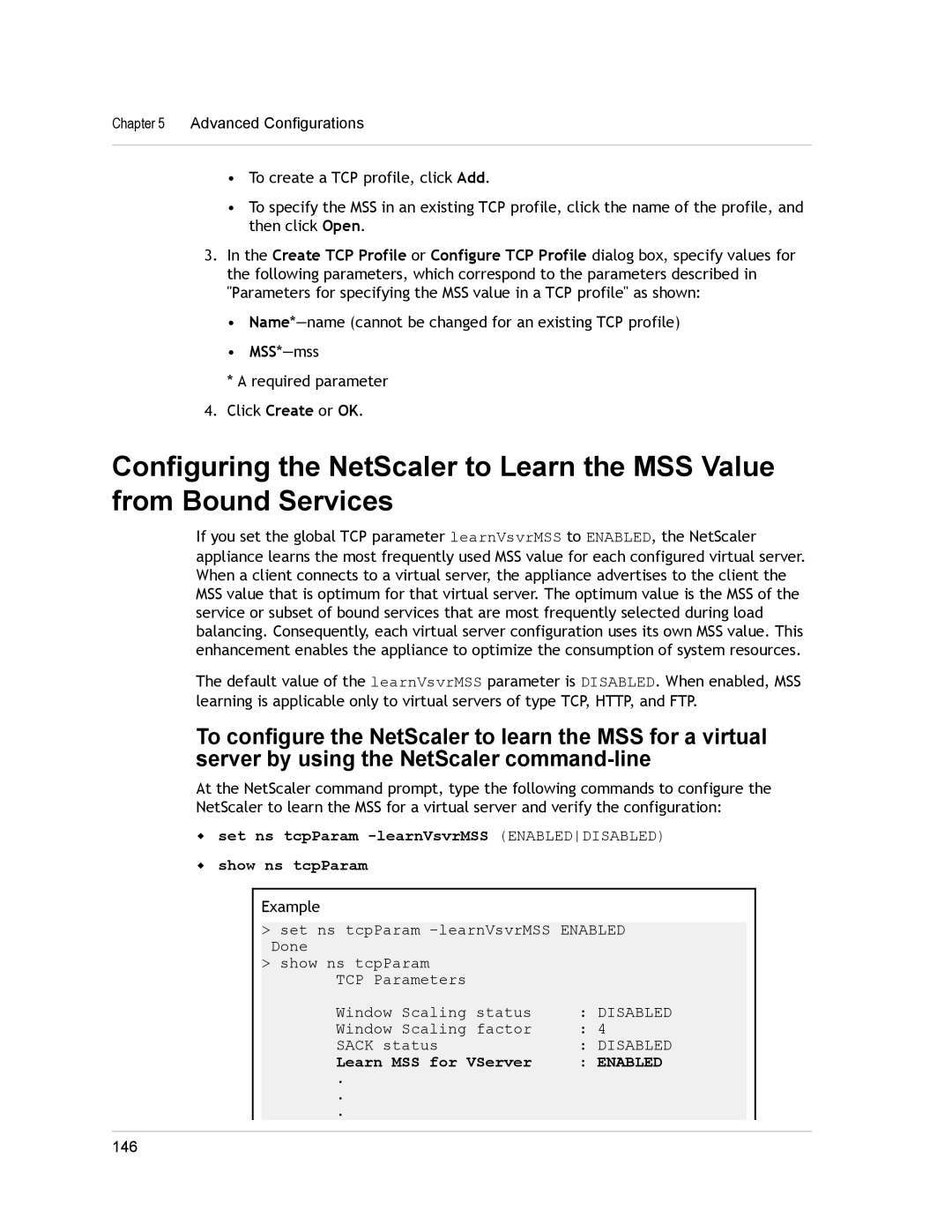
Chapter 5 Advanced Configurations
•To create a TCP profile, click Add.
•To specify the MSS in an existing TCP profile, click the name of the profile, and then click Open.
3.In the Create TCP Profile or Configure TCP Profile dialog box, specify values for the following parameters, which correspond to the parameters described in "Parameters for specifying the MSS value in a TCP profile" as shown:
•
•
* A required parameter
4.Click Create or OK.
Configuring the NetScaler to Learn the MSS Value from Bound Services
If you set the global TCP parameter learnVsvrMSS to ENABLED, the NetScaler appliance learns the most frequently used MSS value for each configured virtual server. When a client connects to a virtual server, the appliance advertises to the client the MSS value that is optimum for that virtual server. The optimum value is the MSS of the service or subset of bound services that are most frequently selected during load balancing. Consequently, each virtual server configuration uses its own MSS value. This enhancement enables the appliance to optimize the consumption of system resources.
The default value of the learnVsvrMSS parameter is DISABLED. When enabled, MSS learning is applicable only to virtual servers of type TCP, HTTP, and FTP.
To configure the NetScaler to learn the MSS for a virtual server by using the NetScaler
At the NetScaler command prompt, type the following commands to configure the NetScaler to learn the MSS for a virtual server and verify the configuration:
wset ns tcpParam
wshow ns tcpParam
Example
>set ns tcpParam
>show ns tcpParam
TCP Parameters |
|
Window Scaling status | : DISABLED |
Window Scaling factor | : 4 |
SACK status | : DISABLED |
Learn MSS for VServer | : ENABLED |
. |
|
. |
|
. |
|
146
